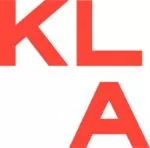DD 51/2024 expands the list of products subject to reverse logistics and sets stringent targets for companies in São Paulo, with a deadline of December 31, 2025, to meet these obligations
To renew their environmental licenses, companies must annually demonstrate the implementation of reverse logistics systems, in accordance with the stages and targets established by CETESB. DD 51/2024 outlines the second stage of this process, concluding on December 31, 2025. The obligation for reverse logistics is established by Law No. 12,305/2010 and regulated by SMA Resolution No. 45/2015.
In this second stage, all manufacturers or brand holders of certain products, as well as any third parties responsible for the import, distribution, or commercialization of products subject to reverse logistics (even if they do not hold any brand rights), who possess an environmental license issued by CETESB, are required to submit annual reports.
Regarding post-consumer responsibility, DD 51/2024 expands the list of products and/or packaging subject to these requirements. This includes those products that generate waste considered to have a significant environmental impact or that constitute the dry fraction of urban solid waste or equivalent waste (such as health or construction waste, which, although not considered urban waste, require special handling).
The issuance and/or renewal of environmental licenses by entities subject to these obligations is contingent upon compliance with the relevant regulations. The method of fulfilling this obligation depends on the type of product and/or packaging, and the classification of the respective entities, through specific plans or commitment agreements, with results and reports made available on SIGOR Reverse Logistics.
Quantitative and geographic targets are defined in Annex I of DD 51/2024.
DD 51/2024 intensifies the implementation of reverse logistics in the State of São Paulo, expanding the scope of products and establishing more stringent targets. Companies with environmental licenses from CETESB must annually demonstrate compliance with these targets through SIGOR, under penalty of non-renewal of the license, in addition to fines and other penalties. The measure aims to ensure the proper disposal of 100% of waste, reducing environmental impact, and promoting the circularity of the economy.
The content of this article is intended to provide a general guide to the subject matter. Specialist advice should be sought about your specific circumstances.


